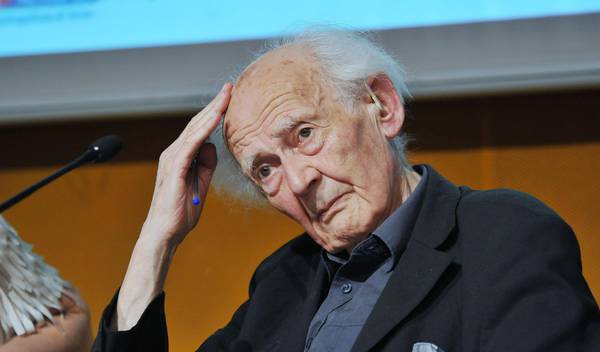Polish-born sociologist Zygmunt Bauman dies in UK at age 91
In Leeds, he was born in Poznan (Poland)
10 January, 11:51(ANSA-AP) - ROME - Zygmunt Bauman, one of the most prominent and prolific European sociologists of recent decades, has died at the age of 91. The Polish-born left-wing thinker's works ex plored the fluidity of identity in the modern world, the Holocaust, consumerism and globalization.
Bauman died at his home in Leeds, England, on Monday surrounded by his family, according to Anna Zejdler-Janiszewska, a Warsaw-based philosophy professor and friend of Bauman's who was informed of his death by his wife.
Renowned for an approach that incorporated philosophy and other disciplines, Bauman was a strong moral voice for the poor and dispossessed in a world upended by globalization. Whether he was writing about the Holocaust or globalization, his focus remained on how humans can create a dignified life through ethical decisions.
He wrote more than 50 books, notably "Modernity and the Holocaust," a 1989 release in which he differed with many other thinkers who saw the barbarism of the Holocaust as a breakdown in modernity. Bauman viewed the mass exterminations of Jews as the very outcome of such pillars of modernity as industrialization and rationalized bureaucracy. "It was the rational world of modern civilization that made the Holocaust thinkable," Bauman wrote.
In the 1990s, Bauman coined the term "liquid modernity" to describe a contemporary world in such flux that individuals are left rootless and bereft of any predictable frames of reference. In books including "Liquid Times" and "Liquid Modernity" he explored the frailty of human connection in such times and the insecurity that a constantly changing world creates. "In a liquid modern life there are no permanent bonds, and any that we take up for a time must be tied loosely so that they can be untied again, as quickly and as effortlessly as possible, when circumstances change," Bauman wrote.
In informing friends in Poland of his death Monday, Bauman's wife wrote that he had gone "to liquid eternity." In Poland, he was a controversial figure in some circles. In 2006, a right-wing historian uncovered documents showing that Bauman served as an officer in a Stalinist-era military organization, the Internal Security Corps, which was helping to impose communism on the nation by killing resisters to the regime. Bauman acknowledged belonging to that unit, but he insisted that he only had a desk job. No evidence has surfaced linking him to any killings. Some nationalists saw him as an enemy of the country. In 2013, supporters of a far-right organization disturbed a public debate with Bauman in the western Polish city of Wroclaw, whistling and shouting "Shame!" and "down with communism!" and holding up photos of Polish resistance fighters killed by the communists.
After that he stopped visiting his homeland. Beyond Poland, Bauman's theories were a major influence on the anti-globalization movement. He focused on the outcasts and the marginalized, describing how many people have seen their chances of a dignified life destroyed by the new borderless world. As a result, he found a following in Spain and Italy, where young adults were hit especially hard by economic dislocation in recent years.














